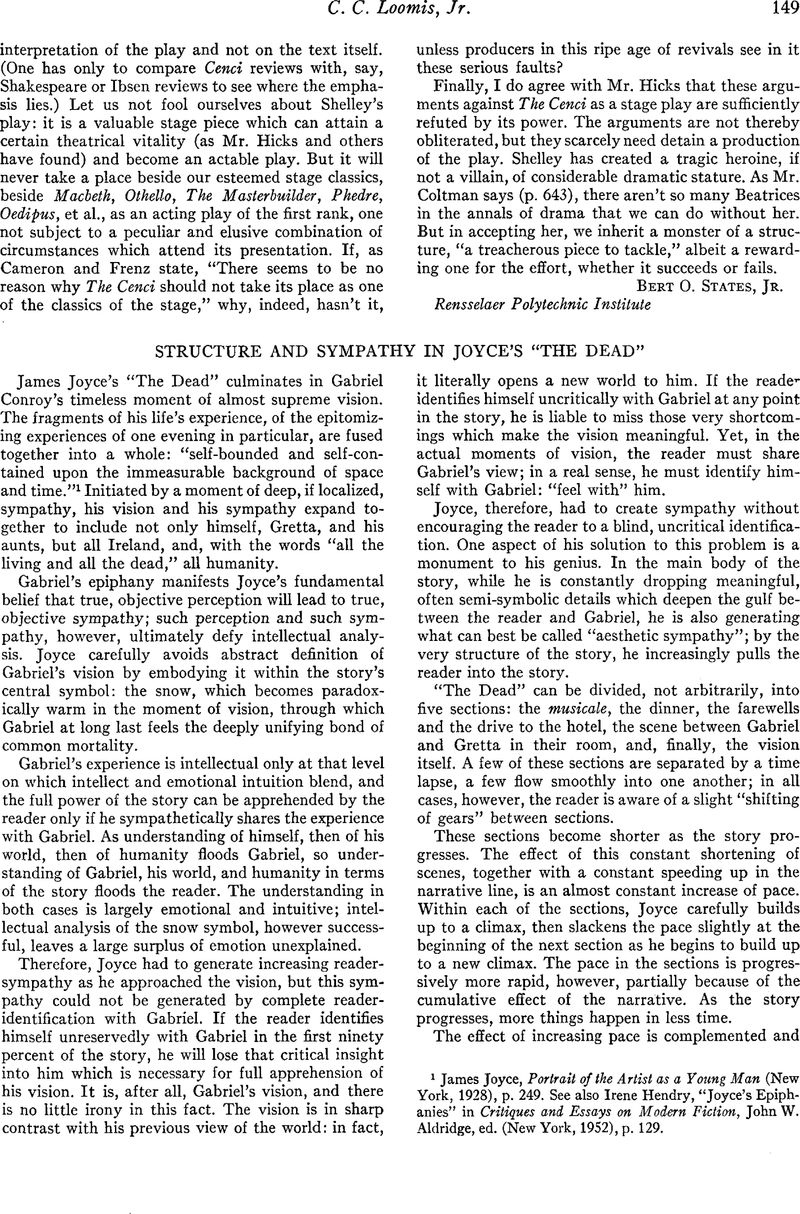Published online by Cambridge University Press: 02 December 2020

1 James Joyce, Portrait of the Artist as a Young Man (New York, 1928), p. 249. See also Irene Hendry, “Joyce's Epiphanies” in Critiques and Essays on Modern Fiction, John W. Aldridge, ed. (New York, 1952), p. 129.
2 For an enlightening discussion of the problem of reader-identification and “extraordinary perspective” in 19th- and 20th-century literature, see R. W. Langbaum, The Poetry of Experience (New York, 1957).
3 William T. Noon, S.J., in Joyce and Aquinas (New Haven, 1957), pp. 84–85, places Gabriel's epiphany at “the moment when the full impact of Gretta's disclosure of her secret strikes him” : before the snow image of the closing paragraphs. Father Noon separates Gabriel's moment of vision from the reader's, and seems to state that the snow image is for the reader's enlightenment, not Gabriel's. I agree with Father Noon that the reader cannot possibly apprehend the depth of Gabriel's sudden sympathy with Gretta until Joyce gives him the closing image, but I do not believe that Gabriel's own vision is complete until this final image; the epiphany begins with his sympathy for Gretta, but is not complete, because not universal, until he “heard the snow falling faintly through the universe.”